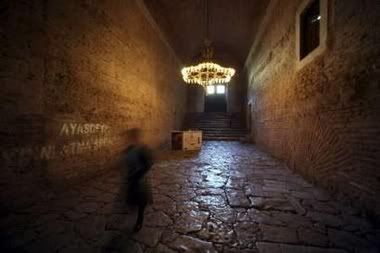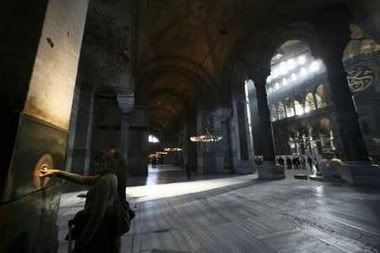He has a quote from Bloomberg News on how Iran is beaming Azeri-language programming to its neighbor in a bid to destabilize the pro-western government. Goldman mentions as well the fault lines of Azeri society and how they reflect the larger lines in the Middle East. Two-thirds of Azeris are Shi'ites, like Iran, and Azerbaijan has historically been known as northern Persia. But Azeris are ethnically Turkic and are viewed by Sunni Turkey as its own ancestral backyard.
At the political current events blog I read, Hot Air, a lot has been made lately of Turkey's drift towards Islamism and Iran. But in his blog post, Goldman sees rather that Azerbaijan is the wedge between the two and Turkey is moving into alignment with the likes of Saudi Arabia and the Gulf states in a bid to counter Iranian ambitions.
Goldman's conclusion is rather pessimistic:
But it is not surprising that the oil price should keep rising. The United States government is in the hands of a clique of amateurs like Samantha Power and Susan Rice, human-rights romantics without a clue about the real power relationships, while the ground has shifted under the regimes of the Middle East. Iran’s ambitions are the main concern in Riyadh and Ankara, and the weakness of the Assad regime in Syria–Iran’s main regional ally–make the situation very tippy indeed.

